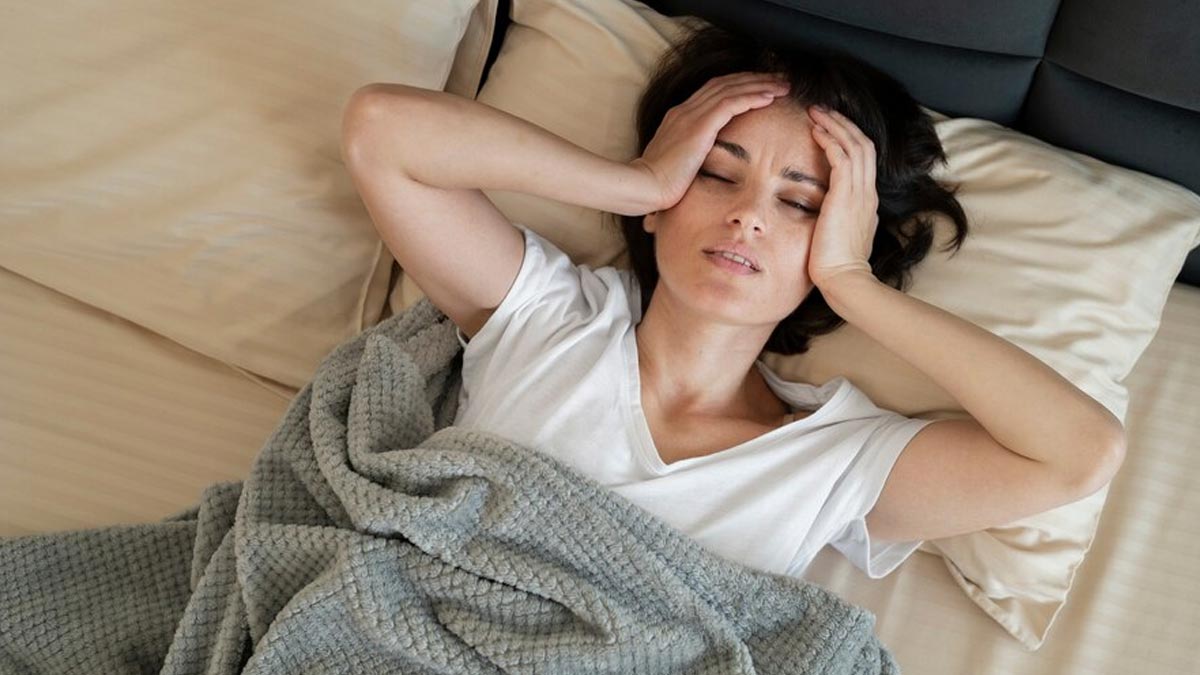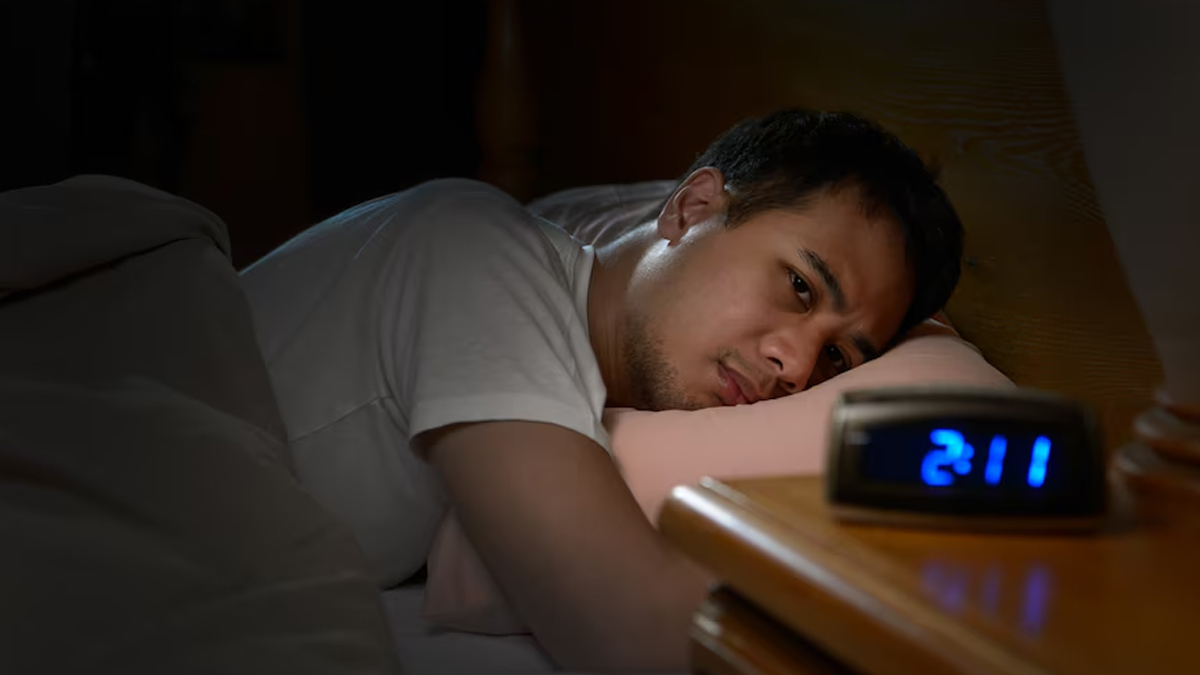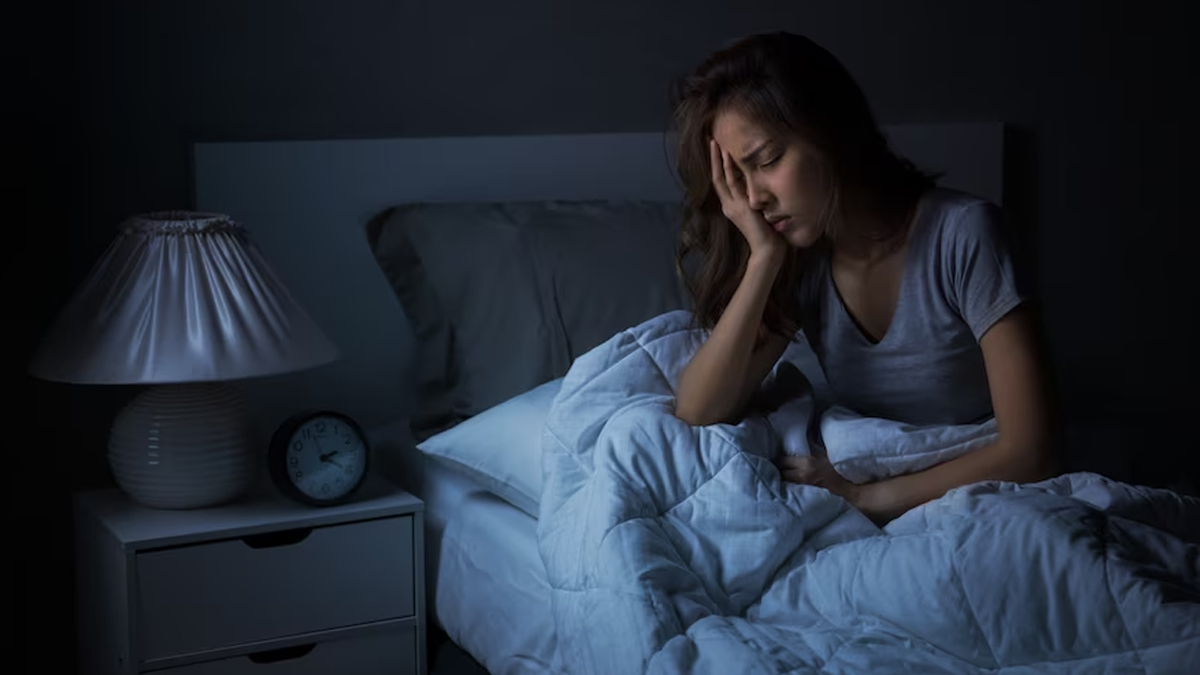
Sleep issues have become increasingly common in recent years due to factors such as stress, hectic schedules, unhealthy diets, excessive digital device use, and sedentary lifestyles. While some people experience short-term sleep problems, others suffer from chronic sleep disorders like insomnia, which reportedly affects one-third of adults. Given the widespread nature of these issues, it can be challenging to sometimes distinguish between temporary sleeplessness and a more serious sleep disorder like insomnia.
Table of Content:-
Also Read: Insomnia: Know About Different Types Of Insomnia
Recognising The Classic Signs Of Insomnia

Dr Vivek Nangia, Pulmonologist, Principal Director and Head, Institute of Respiratory, Critical Care and Sleep Medicine, Max Hospital, Saket, New Delhi, describes insomnia as a chronic condition characterised by persistent difficulty falling asleep, staying asleep, or experiencing restorative sleep.
According to him, it typically lasts for at least three nights per week over a period of at least three months.
Some of the classic symptoms of insomnia include:
- Persistent difficulty falling asleep.
- Difficulty staying asleep throughout the night.
- Waking up too early and being unable to go back to sleep.
- Experiencing non-restorative sleep, where one does not feel refreshed after a full night's sleep.
"When these symptoms occur during the above-mentioned period, it can lead to daytime impairments such as fatigue, mood disturbances, and decreased performance," says Dr Nangia.
How To Distinguish Between Insomnia And Temporary Sleeplessness

At times, it may be difficult to tell whether you have temporary sleeplessness or insomnia. However, there are some factors that can help you tell the two apart. These include:
Duration: Insomnia is a chronic condition lasting at least three nights per week for a minimum of three months, whereas general sleeplessness can be temporary or occasional.
Causes: Insomnia is often associated with psychological factors (such as anxiety or depression), medical conditions, medications, or lifestyle factors. In contrast, general sleeplessness may result from temporary factors like stress, caffeine consumption, or a change in environment.
Impact: Insomnia leads to significant daytime impairment, including fatigue, mood disturbances, and decreased performance. General sleeplessness may cause temporary discomfort or tiredness but does not typically result in long-term effects if resolved.
On Treating Insomnia

Dr Nangia is of the opinion that prior to understanding the treatment for insomnia, it is crucial to understand the causes behind it.
Some of the factors include:
Psychological factors: Anxiety, depression, and stress are common psychological contributors.
Medical conditions: Chronic pain, asthma, diabetes, gastroesophageal reflux disease, and other medical issues can interfere with sleep.
Medications: Certain medications, including those for asthma, allergies, and hypertension, can affect sleep patterns.
Lifestyle factors: Irregular sleep schedules, poor sleep habits, and environmental factors such as noise or light can contribute to insomnia.
Also Read: Do You Struggle To Sleep At Night? Try These Tips To Improve Your Quality of Sleep
Once the cause of the condition is determined, you can consult with your doctor about the kinds of treatments you can receive. These include:
Lifestyle changes: Improving sleep hygiene by establishing a regular sleep schedule, creating a comfortable sleep environment, avoiding stimulants like caffeine before bedtime, making a habit of walking for at least 15-20 minutes after dinner, preferably outdoors, consuming a glass of lukewarm milk with a pinch of turmeric before going to bed, avoiding overeating during dinner, Importantly, sticking to a sleep schedule, even on weekends, is a great way to start, says Dr Nangia.
Relaxation techniques: Practices such as meditation, deep breathing exercises, and progressive muscle relaxation can help reduce stress and promote better sleep.
Other techniques: Make your bedroom dark, limit daytime naps to 30 minutes, and avoid strenuous physical activity in the evening hours.
Cognitive Behavioural Therapy (CBT): A structured program that helps individuals identify and replace thoughts and behaviours that cause or worsen sleep problems with habits that promote sound sleep. CBT comes into play when all other remedial modes fail, like changing sleep habits and taking care of any issues related to insomnia, such as stress, medical conditions, or medicines.
Medications: Prescription sleep aids or over-the-counter options may be used under medical supervision for short-term relief. Sedatives or benzodiazepines should only be taken after consultation with a health care provider.
[Disclaimer: This article contains information provided by an expert and is for informational purposes only. Hence, we advise you to consult your own doctor if you are dealing with any health issues to avoid complications.]
Also watch this video
How we keep this article up to date:
We work with experts and keep a close eye on the latest in health and wellness. Whenever there is a new research or helpful information, we update our articles with accurate and useful advice.
Current Version